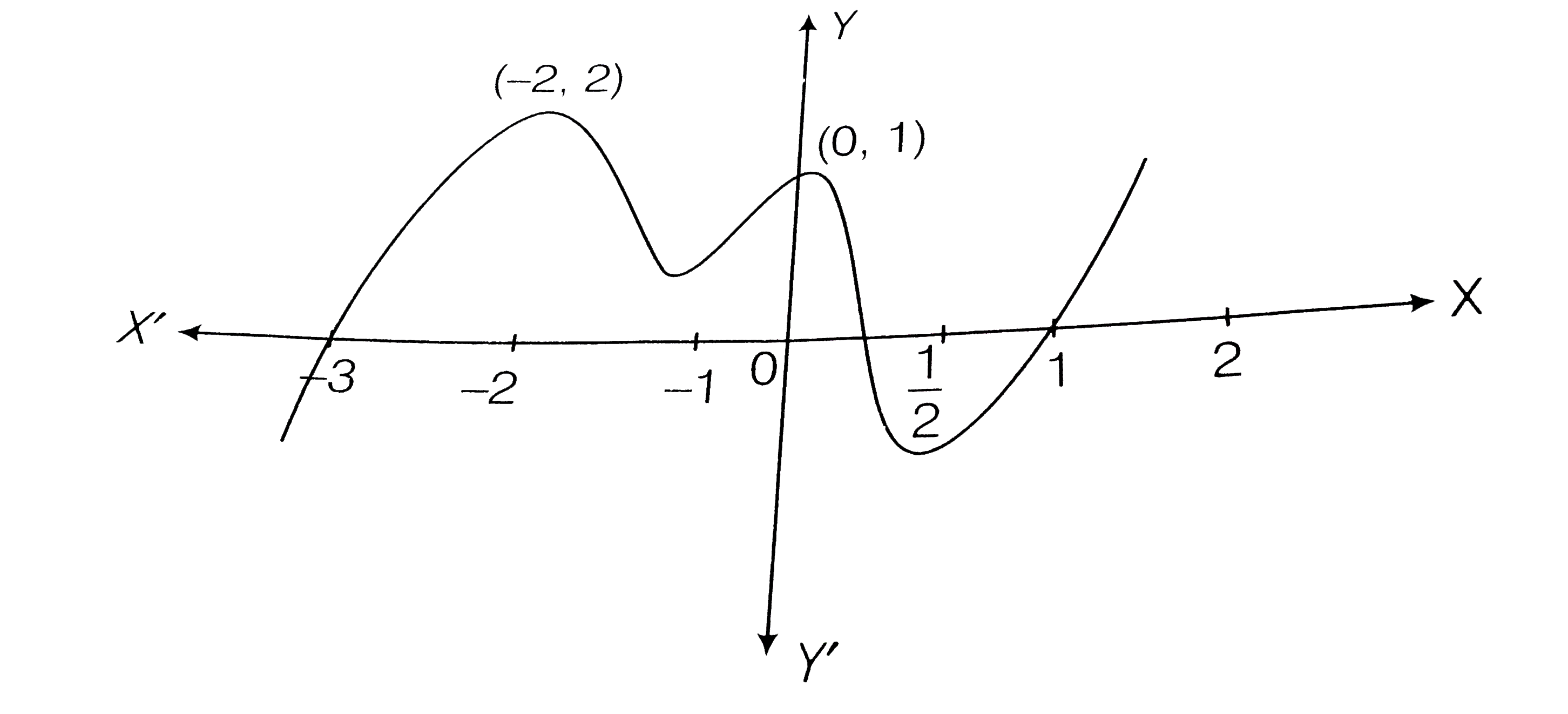Given P(x)=x4+ax3+cx+d such that x=0 is the only real root of P'(x)=0.IfP(1)<P(1) , then in the interval [1,1] . (1) P(1) is the minimum and P(1) is the maximum of P (2) P(1) is not minimum but P(1) is the maximum of P (3) P(1) is the minimum but P(1) is not the maximum of P (4) neither P(1) is the minimum nor P(1) is the maximum of P
P(-1) is not minimum but P(1) is the maximum of P
P(-1) is the minimum but P(1) is not the maximum of P
Neither P(-1) is the minimum nor P(1) is the maximum of P
P(-1) is the minimum and P(1) is the maximum of P
The correct Answer is:A
Step by step video, text & image solution for Given P(x)""=""x^4+""a x^3+""c x""+""d such that x""=""0 is the only real root of P '(x)""=""0.""If""P(1)""<""P(1) , then in the interval [1,""1] . (1) P(1) is the minimum and P(1) is the maximum of P (2) P(1) is not minimum but P(1) is the maximum of P (3) P(1) is the minimum but P(1) is not the maximum of P (4) neither P(1) is the minimum nor P(1) is the maximum of P by Maths experts to help you in doubts & scoring excellent marks in Class 12 exams.
Updated on:21/07/2023Topper's Solved these Questions
Similar Questions
Knowledge Check
Given P(x) =x4+ax3+bx2+cx+d such that x=0 is the only real root of P'(x) =0 . If P(-1) < P(1), then in the interval [−1,1]
AP(-1) is the minimum and P(1) is the maximum of PBP(-1) is not minimum but P (1)is the maximum of PCP(-1) is the minimum and P(1) is not the maximum of PDneither P(-1) is the minimum nor P(1) is the maximum of PGiven P(x) =x4+ax3+bx2+cx+d such that x=0 is the only real root of P'(x) =0 . If P(-1) lt P(1),then∈the∫erval[-1,1]
A(a) P(-1) is the minimum and P(1) is the maximum of PB(b) P(-1) is not minimum but P(1) is the maximum of PC(c) P(-1) is not minimum and P(1) is not the maximum of PD(d) neither P(-1) is the minimum nor P(1) is the maximum of PLet f(x)=x3+x+1, let p(x) be a cubic polynomial such that the roots of p(x)=0 are the squares of the roots of f(x)=0 , then
Ap(1)=3Bthe value of P(n), n∈N is oddCSum of all roots of p(x)=0 is −2DSum of all product of roots taken two at a time is 1
In the given figure graph of y=P(x)=ax5+bx4+cx3+dx2+ex+f, is given.

The minimum number of real roots of equation (P''(x))2+P'(x).P'''(x)=0, is
View SolutionLet P(x)=x2+12x+b and Q(x)=x2+cx+d be two polynomials with real coefficients such that P(x)Q(x)=Q(P(x)) for all real x. Find all the real roots of P(Q(x)) =0.
View SolutionLet f(x)=x3+x+1 and P(x) be a cubic polynomial such that P(0) = -1 and roots of f(0) = 1 ; P(x) = 0 are the squares of the roots of f(x) = 0 . Then find the value of P(4).
View SolutionLet P(x)=x2+12x+b and Q(x)=x2+cx+d be two polynomials with real coefficients such that P(x)Q(x)=Q(P(x)) for all real x. Find all the real roots of P(Q(x))=0.
View SolutionIf x2+2(a+1)x+9a−5=0 has only negative roots then a
View Solution

